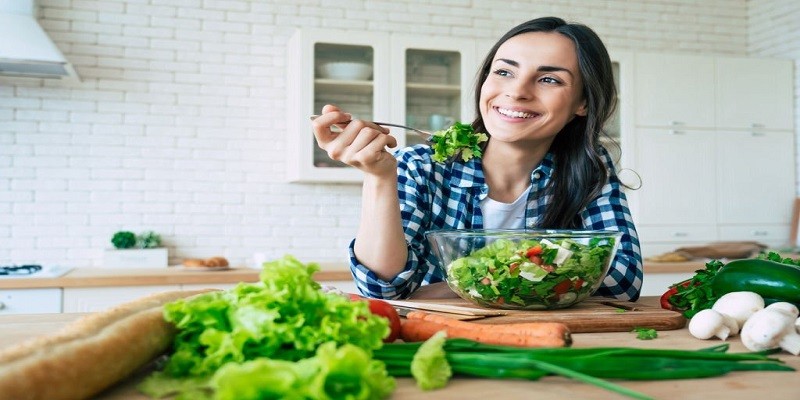Yes, you can eat coleslaw while pregnant, but with some precautions. Coleslaw made with pasteurized mayonnaise and fresh, properly washed ingredients is generally safe during pregnancy.
Pregnancy cravings can be intense, and coleslaw, a popular side dish, is often one of them. However, it’s crucial to understand the potential risks and benefits of consuming coleslaw during pregnancy to ensure the safety of both the mother and the baby. This article will provide a comprehensive guide on whether it’s safe to eat coleslaw while pregnant and how to do so safely.
What is Coleslaw?
Coleslaw is a cold salad made primarily from shredded raw cabbage and carrots, mixed with a creamy dressing, typically mayonnaise-based. It’s a popular side dish that can be found in many restaurants, delis, and supermarkets, and is often served alongside sandwiches, burgers, and other main dishes.
Nutritional Value of Coleslaw
| Nutritional Value | Details |
|---|---|
| Vitamins | Rich in vitamins A, C, and K from cabbage and carrots. |
| Fiber | Good source of dietary fiber from the vegetables. |
| Protein | Mayonnaise provides a small amount of protein. |
| Calories | Relatively low in calories, depending on the dressing used. |
Risks of Eating Coleslaw During Pregnancy
| Risks | Details |
|---|---|
| Listeria | Unpasteurized mayonnaise or coleslaw left at unsafe temperatures can harbor listeria bacteria, which can cause listeriosis, a serious infection during pregnancy. |
| Salmonella | Coleslaw made with raw or undercooked eggs in the mayonnaise can lead to salmonella poisoning. |
| Cross-contamination | Improper handling or storage of coleslaw can lead to cross-contamination with other harmful bacteria. |
Safe Ways to Eating Coleslaw During Pregnancy
Coleslaw can be safely consumed during pregnancy if it’s made with pasteurized mayonnaise, fresh and properly washed vegetables, and stored at safe temperatures. Homemade coleslaw using pasteurized ingredients and proper food handling practices is also a safe option.
Alternatives to Coleslaw During Pregnancy
| Alternatives | Precautions |
|---|---|
| Garden Salad | Wash vegetables thoroughly, use pasteurized dressings. |
| Fruit Salad | Wash fruits thoroughly, avoid unpasteurized juices or dressings. |
| Roasted Vegetables | Ensure proper cooking temperatures to kill any bacteria. |
Expert Tips
- “Always choose coleslaw made with pasteurized mayonnaise or dressings to reduce the risk of foodborne illnesses.”
- “Avoid coleslaw from delis or salad bars, as it may have been sitting at unsafe temperatures for an extended period.”
- “If making coleslaw at home, wash all vegetables thoroughly and use pasteurized eggs or egg products in the mayonnaise.”
FAQs
Can I eat coleslaw from a restaurant while pregnant?
It’s generally safe to eat coleslaw from reputable restaurants that follow proper food handling and storage practices. However, it’s best to avoid coleslaw that has been sitting out for an extended period or appears to be mishandled.
Is it safe to eat coleslaw made with raw eggs during pregnancy?
No, it’s not recommended to consume coleslaw made with raw or undercooked eggs during pregnancy, as it can increase the risk of salmonella poisoning.
Can I eat coleslaw if I’m allergic to eggs?
Yes, you can eat coleslaw made without eggs or with egg-free mayonnaise if you have an egg allergy.
How long can coleslaw be stored safely during pregnancy?
Coleslaw should be consumed within 3-5 days of preparation when stored properly in the refrigerator at or below 40°F (4°C).
Can I eat coleslaw if I have gestational diabetes?
Coleslaw can be a part of a balanced diet for gestational diabetes, but it’s important to monitor portion sizes and choose varieties with minimal added sugars in the dressing.
Conclusion
Coleslaw can be a safe and enjoyable addition to a pregnant woman’s diet when consumed with proper precautions. By choosing coleslaw made with pasteurized ingredients, washing vegetables thoroughly, and following safe food handling practices, expectant mothers can satisfy their cravings while minimizing potential risks to themselves and their babies.
Last Updated on May 25, 2024 by Marjorie R. Rogers, MA (English), Certified Consultant

